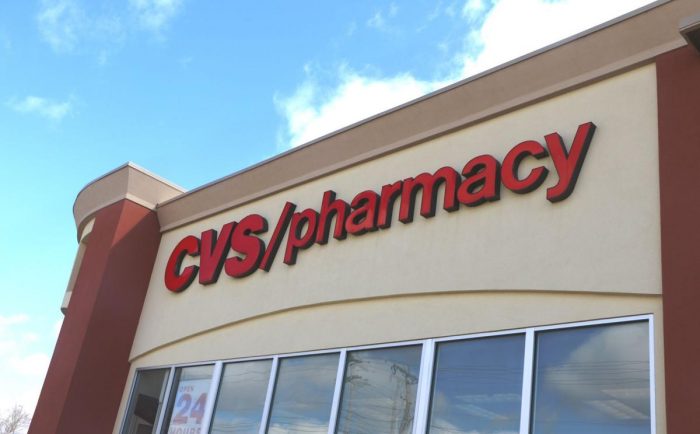Mental health walk-in help at the local pharmacy
People might soon be able to grab their prescriptions, a bag of potato chips and pick up soap as they head into a new therapy service at their local CVS.
The nation’s pharmacy retail giant has started a new service at several of their stores across the U.S. — offering both walk-in and scheduled sessions for mental health treatment. These appointments are available beyond typical daytime hours, including nights and weekends.
According to a spokesperson with CVS Health, the company began adding licensed clinical social workers trained in cognitive behavioral therapy to 13 locations in the Houston, Philadelphia and Tampa metro areas in January of this year.
These providers will offer mental health assessments, referrals and personalized counseling either in person or via telehealth through MinuteClinics inside CVS HealthHUB store locations.
The spokesperson said the company is planning on expanding to 34 locations this spring.
“We anticipate expanding mental health services into additional markets in the coming months,” the representative said in an email. “We expect to have more detailed information soon.”
Rite Aid and Walmart have started similar programs, too.

Photo from Stony Brook Medicine
And although MinuteClinics and the like are not available in New York state yet, Dr. Adam Gonzalez, director of behavioral health and founding director of the Mind-Body Clinical Research Center at the Stony Brook Renaissance School of Medicine, said this could potentially be a good day if such facilities were to come close to home.
“The COVID-19 pandemic has brought about many challenges and disruptions to our way of life,” he said. “We have seen an increase in depression, anxiety, increased stress overall and grief responses. Recent mental health data from the CDC also highlights an increase in mental health problems, especially among young adults, and importantly, unmet mental health needs.”
According to Gonzalez, a recent CDC report indicates that during August 2020 through this February “the percentage of adults with recent symptoms of an anxiety or a depressive disorder increased from 36.4% to 41.5%, and the percentage of those reporting an unmet mental health care need increased from 9.2% to 11.7%. Increases were largest among adults aged 18–29 years and those with less than a high school education.”
“There is a great need for mental health awareness and treatment at this time,” Gonzalez added. “A silver lining of the pandemic has been the expansion and use of telehealth as a platform for treatment, allowing patients to participate in mental health treatment from the comfort of their home. However, a limiting factor for accessing care is the availability of providers.”
He said throughout the pandemic, SBU’s Department of Psychiatry and Behavioral Health saw a great increase in the need for mental health care — so large, it developed a call center.
“Throughout the pandemic we have consistently been receiving over 7,000 calls per month,” the director said. “Evaluating our outpatient data for the three months before the pandemic and the current last three months, there has been a 50% increase in number of visits scheduled for outpatient mental health services. Of note, the number of visits scheduled is limited by the number of providers available to provide services.”
With the need for mental health providers continuing to grow, Gonzalez said additional services — like the ones at the CVS pharmacy chain — could be helpful.
“I think having services available at CVS could help with normalizing mental health treatment and increasing access to care,” he said. “The more mental health service options available to the community, the better. One consideration is the type and quality of care to be delivered. Although it is important to increase access, we also want to make sure that the quality of care being delivered is high.”
But if and when the retailers open up shop on Long Island, Stony Brook Medicine is working on finding ways to reduce feelings of hopelessness and distress.
“We are actively working on investigating various methods of delivering care to help with increasing access to treatment and addressing the mental health needs of the community,” Gonzalez said.
These methods include expanding group-based services, utilizing a collaborative care model that involves working closely with primary care physicians and behavioral health care managers for medication management, and utilizing skills-based single-session interventions.
“We have been working with Dr. Jessica Schleider in the Department of Psychology at Stony Brook University to implement and study a problem-solving single-session intervention,” he added. “Initial data indicates that these sessions help with improving agency — motivation for change — and reduce feelings of hopelessness and distress.”







